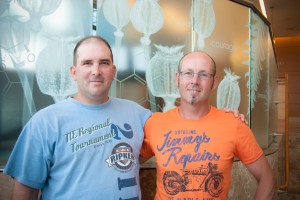Approximately 173,000 people in the United States are living with Hodgkin lymphoma, or are in remission. Less common than non-Hodgkin lymphoma, Hodgkin lymphoma (sometimes referred to as Hodgkin’s lymphoma) is a malignancy of B lymphocytes, an important cell in the immune system. This malignant B cell is known as the Reed-Sternberg cell.
Arnold Freedman, MD, clinical director of the Dana-Farber/Brigham and Women’s Cancer Center Adult Lymphoma Program, answers some questions about the disease:

